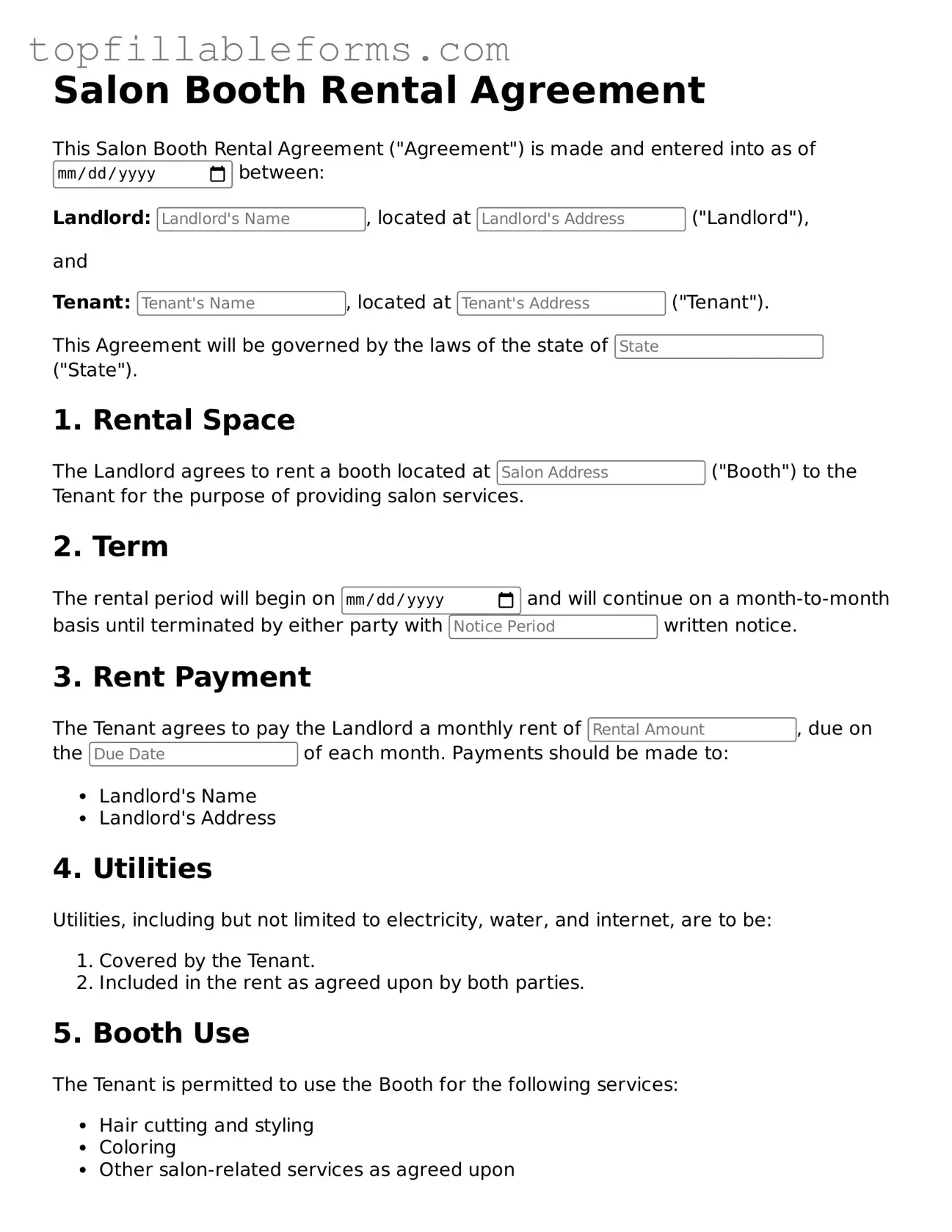Free Salon Booth Rental Agreement Form
The Salon Booth Rental Agreement is a vital document that outlines the terms and conditions between a salon owner and a stylist who rents a booth within the salon. This agreement ensures that both parties understand their rights and responsibilities, promoting a harmonious working relationship. By clearly defining the rental terms, it helps prevent misunderstandings and fosters a professional environment.
Open Salon Booth Rental Agreement Editor Here

Free Salon Booth Rental Agreement Form
Open Salon Booth Rental Agreement Editor Here
Finish the form now and be done
Finish your Salon Booth Rental Agreement online by editing, saving, and downloading fast.
Open Salon Booth Rental Agreement Editor Here
or
▼ PDF File
